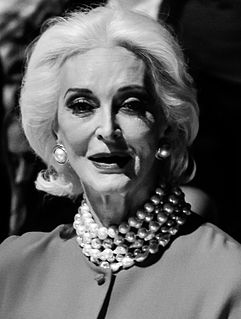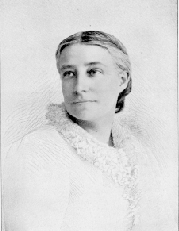A Quote by Carmen Dell'Orefice
I'm totally formed by my mother's interest in fashion. As a Hungarian immigrant, she couldn't afford clothes. She made all her clothes from patterns. It was not dépassé to make your own clothes, it was a respected skill and it was financially expedient. I learned that doing it yourself, having self-discipline and working went hand in hand. To work passionately at something is the key. I'm fortunate and blessed to have had, for the most part in my life, the privilege to work at something I'm passionate about.
Quote Topics
About
Afford
Blessed
Clothes
Discipline
Doing
Fashion
Financially
Formed
Fortunate
Had
Hand
Hand In Hand
Having
Her
Hungarian
Immigrant
Interest
Key
Learned
Life
Made
Make
Most
Mother
My Life
Own
Part
Passionate
Passionately
Patterns
Privilege
Respected
Self
Self-Discipline
She
Skill
Something
Totally
Work
Working
Your
Yourself
Related Quotes
Cara waggled a hand over the two of them. "It works better with your clothes off." Richard frowned. His voice came as a hoarse croak. "What?" She seemed mystified by the question. "I believe you will find such things work better without clothes." She put her hands to her hips. "I thought you would know at least that much.
My mom let me play in her clothes, wear makeup, and I had high heels from a thrift store. My mom tells me that the only reason she let me dress in her clothes is because she couldn't afford any toys, and it seemed entertaining enough and kept her from having to buy me anything, 'cause everything I wanted was in her makeup box or wardrobe.
There were plenty of women around who dressed smartly, and plenty more who dressed to impress, but this girl was different. Totally different. She wore her clothing with such utter naturalness and grace that she could have been a bird that had wrapped itself in a special wind as it made ready to fly off to another world. He had never seen a woman who wore her clothes with such apparent joy. And the clothes themselves looked as if, in being draped on her body, they had won new life for themselves.
I think there’s a lot of threshold weeping. Like, am I doing this? Am I really wearing this out in the world? My daughter is very much like that. She will put clothes on and her clothes just make her beside herself. They make her so sad sometimes. And you do realize you feel betrayed sometimes by your own clothing. You put something on that usually protects you and makes you OK, and sometimes you’re just not fit for the world and even your best pants can’t overcome that feeling for you.
Take it off first, soldier." He looked at her suspiciously. "Take what off?" "Your clothes. Entertain the troops." "My clothes?" He frowned. "I was sort of thinking you might want to do that for me." She shook her head and leaned back on one elbow, giving him her witchiest, bitchiest smile. "Strip." "Now, listen here, Francie--" Lifting a languid hand, she once again pointed toward the center of the room. "Do it real slow, good-looking," she purred. "I want to enjoy every minute.
It was hard when my mother left us. I said to myself: 'You must keep working hard for her.' She was a teacher, a big influence. She made me work harder. So when I'm not doing something right or when I'm not playing or working hard enough, I remember what she used to say to me. She gets me moving. She pushed me to work hard.
The Girl of the Period, sauntering before one down Broadway, is one panorama of awful surprises from top to toe. Her clothes characterize her. She never characterizes her clothes. She is upholstered, not ornamented. She is bundled, not draped. She is puckered, not folded. She struts, she does not sweep. She has not one of the attributes of nature nor of proper art. She neither soothes the eye like a flower, nor pleases it like a picture. She wearies it like a kaleidoscope. She is a meaningless dazzle of broken effects.
It wasn't about how she looked, which was pretty, even though she was always wearing the wrong clothes and those beat-up sneakers. It wasn't about what she said in class--usually something no one else would've thought of, and if they had, something they wouldn't have dared to say. It wasn't that she was different from all the other girls at Jackson. That was obvious. It was that she made me realize how much I was just like the rest of them, even if I wanted to pretend I wasn't.









































